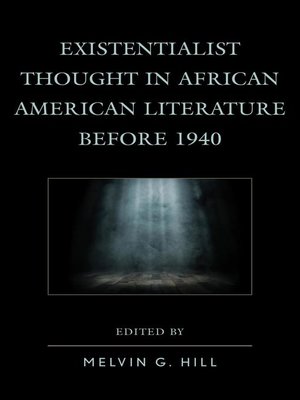
Sign up to save your library
With an OverDrive account, you can save your favorite libraries for at-a-glance information about availability. Find out more about OverDrive accounts.
Find this title in Libby, the library reading app by OverDrive.



Search for a digital library with this title
Title found at these libraries:
| Library Name | Distance |
|---|---|
| Loading... |
Existentialist Thought in African American Literature Before 1940 is the first collection of its kind to break new ground in arguing that long before its classification by Jean-Paul Sartre, African American literature embodied existentialist thought. To make its case, this daring book dissects eight notable texts: Frederick Douglass's Narrative of the Life of Frederick Douglass (1845) and My Bondage and My Freedom (1855), Sojourner Truth's Ain't I A Woman (1861), Harriet Jacobs's Incidents in the Life of A Slave Girl (1861), Sutton E. Griggs's Imperium in Imperio (1899), James Weldon Johnson's Autobiography of an Ex-Colored Man (1912), and Nella Larsen's Quicksand (1928) and Passing (1929). It explores and addresses a wide range of complex philosophical concepts such as: authenticity, potentiality-for-authentic living, bad faith, and existentialism from the Christian point of view. The use of interdisciplinary studies such as gender studies, queer studies, Christian ethics, mixed-race studies, and existentialism, allows the authors within this book to lend unique perspectives in examining selected African American literary works.






